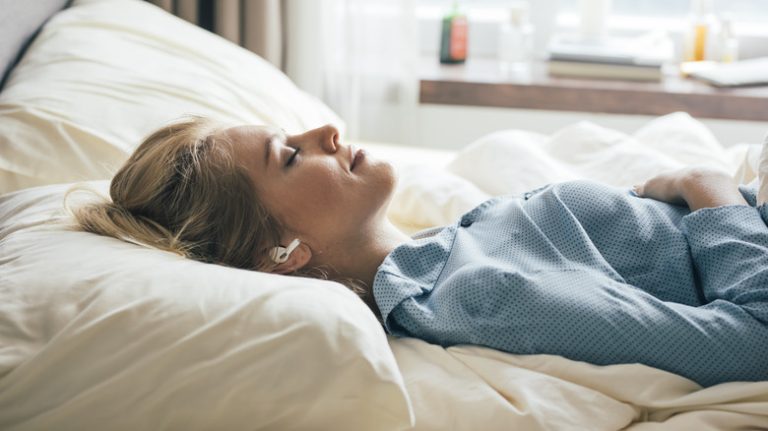The grinding of teeth while sleeping is called bruxism. This condition can wear down your teeth, and it might leave you waking up with jaw and neck pain. Long-term bruxism can lead to headaches and temporomandibular joint (TMJ) problems, according to the Sleep Foundation. It can also contribute to problems with sleep and oral health. While there is no clear explanation why some people grind their teeth in their sleep, the National Health Society (NHS) explains that bruxism is associated with stress, smoking, anxiety, snoring, sleep apnea, and consuming a lot of alcohol or caffeine.
One of the most common ways to prevent teeth grinding is by using a mouth guard. You can buy one over the counter, or your dentist can fit one to your mouth, per the Sleep Foundation. The Mayo Clinic reports that while this works to prevent bruxism, it does not treat the root cause for why it is happening.
Other options to prevent bruxism

If you’re not interested in a mouth guard, there are other ways to prevent bruxism, and most of them have to do with modifying some of your behaviors. If you grind your teeth during the day, put the tip of your tongue between your teeth to train yourself to stop (via WebMD). You should avoid chewing pencils, pens, and even gum when you’re awake because your jaws become used to clenching, and this could cause them to do it while you’re asleep. Another option is relaxing your jaw muscles before going to bed by placing a warm washcloth on the sides of your cheeks. You might also try cutting back on stimulants like caffeine and alcohol later in the day.
If you think stress may be behind your bruxism, Mayo Clinic suggests you could look into relaxation techniques. If you think anxiety is the culprit, you might benefit from seeing a therapist.


